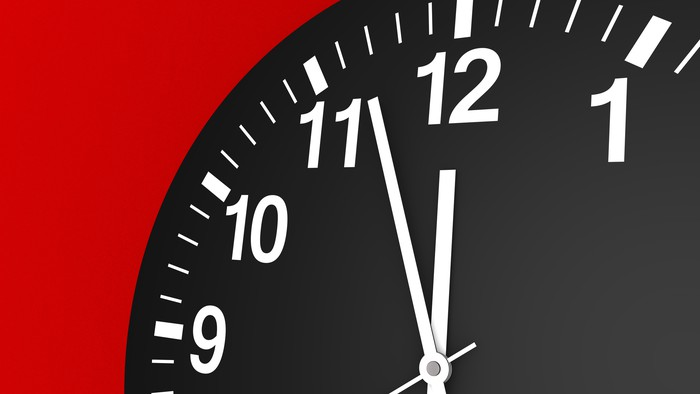Invokana Drug Side Effects Canadian Class Action
-
QC Jul 06, 2017 [fr]
Monographie de produit Invokamet -
ON Jul 06, 2017 [en]
Invokamet Product Monograph -
QC Jul 06, 2017 [fr]
Monographie de produit Invokana -
ON Jul 06, 2017 [en]
Invokana Product Monograph -
ON May 26, 2017 [en]
U.S. Complaint 9 -
ON May 11, 2017 [en]
U.S. Complaint 8 -
ON May 11, 2017 [en]
U.S. Complaint 7 -
ON May 11, 2017 [en]
U.S. Complaint 6 -
ON May 11, 2017 [en]
U.S. Complaint 5 -
ON May 11, 2017 [en]
U.S. Complaint 4 -
ON Apr 24, 2017 [en]
U.S. Complaint 3 -
ON Mar 23, 2017 [en]
U.S. Complaint 2 -
ON Mar 20, 2017 [en]
U.S. Complaint 1
CONSUMER LAW GROUP is investigating a Canada-wide class action lawsuit against Janssen Pharmaceuticals and Johnson & Johnson on behalf of individuals who have taken the medications Invokana or Invokamet and suffered side effects including kidney injury, myocardial infarction (heart attacks), urinary tract infections, cardiovascular problems and diabetic ketoacidosis.
Invokana is the brand name of the drug canagliflozin, which is a sodium glucose cotransporter-2 (SGLT2) inhibitor. This class of Type 2 diabetes drugs lowers blood sugar by causing the kidneys to remove sugar from the body through urination. Invokana is intended to help type-2 diabetes patients maintain a healthy and longer life.
In March 2013, the U.S. Food and Drug Administration (FDA) approved Invokana as the first drug of its class and in May 2014, Invokana was approved for sale by Health Canada. In 2014, the FDA approved Invokamet (canagliflozin and metformin) and in June 2016, Invokamet was approved for sale by Health Canada. The Invokana family of medications made more than $1.4 billion in 2016 for Janssen Pharmaceuticals, a subsidiary of Johnson & Johnson, according to annual reports.
The class action alleges that Janssen Pharmaceuticals and Johnson & Johnson have been aware of serious side effects and complications due to the use of Invokana and Invokamet but failed to warn patients and the medical community.
The serious side effects include:
- Low blood pressure
- Ketoacidosis
- Kidney problems
- Hyperkalemia (high potassium)
- Urosepsis (life-threatening blood infection from a urinary tract infection)
- Pyelonephritis (kidney infection)
- Low blood sugar
- Hypersensitivity reactions
- Bone fracture
The following are some case reports, studies, and data that further support the causal association:
• In 2015, the Institute for Safe Medication Practices (ISMP) published an independent review of Invokana. The report reviewed adverse events submitted by Invokana users to the FDA. In total, the ISMP identified 457 serious adverse event reports, including kidney failure or impairment, dehydration and fluid imbalances, kidney stones, urinary tract infections, yeast infections and abnormal weight loss.
• A search of the FDA Adverse Event Reporting System (FAERS) database from March 29, 2013, to October 19, 2015, identified 101 cases of acute kidney injury after taking Invokana or another SGL2 drug, Farxiga. Hospitalization for evaluation and management of acute kidney injury was necessary in 96 of the 101 cases, and 22 cases involved admission to an intensive care unit. About half of reported cases occurred within one month of starting the drug.
• In December 2015, the FDA released their own concerns regarding potential Invokana kidney failure. The FDA issued a statement that new warnings be added to the drug’s warning label to address the risk of acute kidney injury, and that patients should seek immediate medical attention if they exhibit any signs and symptoms. In addition, the FDA revised labels of SGL2 inhibitors, including Invokana, to include warnings about too much acid in the blood (ketoacidosis) and serious urinary tract infections. In fact, a case study in the Journal of Basic Clinical Pharmacy indicates that a patient developed diabetic ketoacidosis after taking Invokana for four days. Doctors confirmed that Invokana caused the problems.
• In May 2016, Health Canada’s safety review concluded that SGL2 inhibitors may increase the risk of experiencing diabetic ketoacidosis and recommended to update the product information to better explain the symptoms of diabetic ketoacidosis. Health Canada confirmed that serious, sometimes life-threatening and fatal cases of diabetic ketoacidosis have been reported in patients taking Invokana.
• The FDA also required Johnson & Johnson to conduct post-marketing studies and a clinical trial after initial study data showed a troubling increase in the risk of cardiovascular problems such as stroke, blood clots (thromboembolic events) and heart attacks. The Canagliflozin Cardiovascular Assessment Study (CANVAS) trial showed a 46 percent elevated risk for stroke in the first 30 days of treatment.
• On September 10, 2015, the FDA issued a Safety Alert for Invokana and Invokamet, stating that bone fractures were seen in patients taking Invokana. Fractures can occur as early as 12 weeks after starting canagliflozin, which has also been linked to decreases in bone mineral density at the hip and lower spine.
• In 2016, the FDA said it received reports of acute pancreatitis in patients taking Invokana and other SGLT2 inhibitors. A study published in Therapeutics and Case Management analyzed a patient who reported to the ER after experiencing vomiting, pain and nausea for two days. Doctors concluded it was acute pancreatitis caused by Invokana.
• The Journal of Clinical Endocrinology & Metabolism conducted a study demonstrating that there are several biologically plausible mechanisms whereby this class of drugs has potential to increase the risk of developing diabetic ketoacidosis. The study suggests that future research be directed toward identifying which patients are at greatest risk for this side effect, and toward optimizing pharmacotherapy in order to minimize risk to patients.
If you or a member of your family have used INVOKANA and suffered any of the above-mentioned side effects and you wish more information on potential compensation or to be kept advised of the status of the Invokana Drug Side Effects Canadian Class Action litigation or any resulting compensation from the Invokana Drug Side Effects lawsuit in Canada, Quebec or Ontario, please provide your contact information to our law firm using the below form.
IF YOU WISH TO JOIN THE CLASS ACTION OR TO SIMPLY GET MORE INFORMATION, PLEASE COMPLETE THE FORM BELOW. Please note that providing your information creates no financial obligation for you. You are not charged any fee or cost for joining this class action. Our law firm is paid a contingency fee from the compensation recovered, only if the class action is successful. All information contained in this transmission is confidential and Consumer Law Group agrees to protect this information against unauthorized use, publication or disclosure.



 Passer au français
Passer au français


